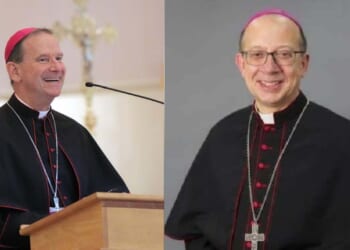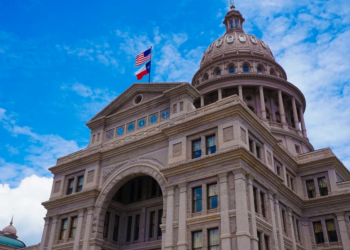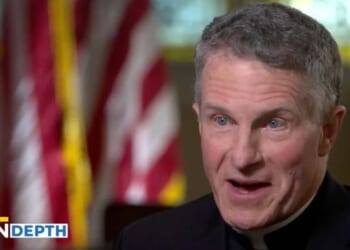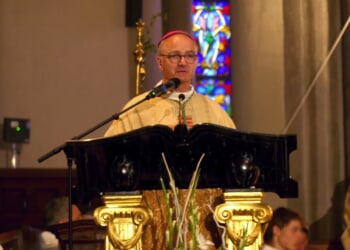The Constitution vests in the president both power and prudence. When unrest spreads and the ordinary mechanisms of enforcement falter, the law grants the nation’s chief executive broad discretion to decide how best to maintain order and protect federal interests. President Donald Trump exercised that discretion within the bounds of established constitutional and statutory authority by deploying the National Guard to major American cities.
The framers designed the presidency to possess lawful tools to respond to threats against federal law and personnel in moments of uncertainty and crisis. The tools rooted in Article II and refined through various legislation permit the president to use the National Guard when state or local authorities fail to secure the peace. Whether or not one agrees with the policy choice, the legal foundation is clear.
When mayors across the country failed to enforce their own laws — including to protect federal officials — the president stepped in. Our communities are safer because of it. (RELATED: ‘Not Good’: National Guard Training Grinds To Halt Amid Shutdown — With No Pay In Sight)
President Donald Trump’s decision to deploy the National Guard to major American cities was not an act of tyranny but one of duty. The Constitution and federal law give the president clear authority to act when local governments cannot, or will not, preserve order and protect federal interests.
Washington, D.C., offers the clearest case. The Constitution grants Congress exclusive jurisdiction over the District, and by statute the president alone commands the D.C. National Guard. When violent crime in the nation’s capital rose above global averages with attacks on embassy staff, congressional workers, and federal employees, the president intervened. Protecting those who serve the federal government is not optional; it is essential to the functioning of our republic.
In Washington, the results were immediate and dramatic. Robbery dropped by 46 percent, carjackings by 83 percent, and violent crime by 22 percent. Even Mayor Muriel Bowser, long a critic of the President, admitted that the surge “enhanc[ed] what MPD has been able to do.” The numbers prove that decisive leadership works.
The president’s lawful authority extends beyond the capital. Under 10 U.S.C. § 12406 and related provisions, the president may federalize the National Guard or direct it under 32 U.S.C. § 502, or “Title 32” status, to support federal missions. That is what happened in Los Angeles, Memphis, Portland and Chicago, where federal personnel and facilities are under threat and local officials have failed to act. In each case, the legal justification is sound: the duty to “take care that the laws be faithfully executed” does not end at the Potomac River.
The principle is simple. The federal government cannot function if its workers are unsafe, its laws unenforced, or its capital and federal buildings are overrun by crime. Inaction is not neutrality but neglect, and the president took lawful steps to faithfully execute the law. (RELATED: Young Boy In Memphis Thanks Trump For Sending National Guard To Fight Crime)
History and precedent affirm the legality of such measures. Presidents from Washington to Eisenhower used the militia or National Guard to uphold federal law when states could not or would not do so. Critics misjudge such actions as overreach, but the record shows otherwise. The National Guard is not a tyrannical foreign invading force but the organized militia of the people, and its deployment falls squarely within the letter and spirit of American law.
The relevant question then is not whether or not the president had to act but whether he could do so lawfully. He could – and he did. In moments of civic unrest, leadership often demands restraint as much as resolve. The president chose to act within legal limits to reaffirm the simple truth that the rule of law is one of the signature constitutional binds holding up our republic.
Benjamin Osborne serves as a Legal Fellow at the Center for Renewing America.

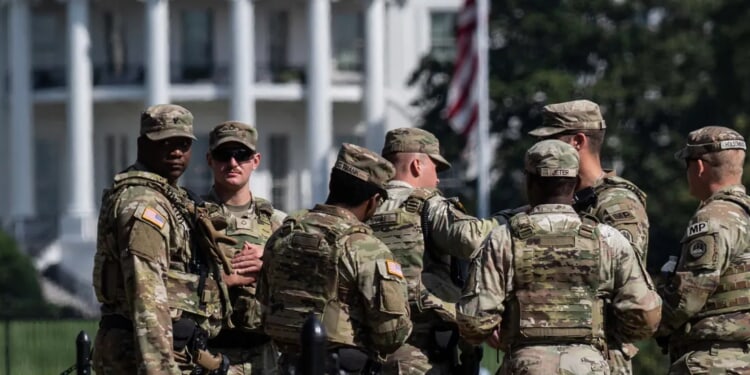







![Florida Officer Shot Twice in the Face During Service Call; Suspect Killed [WATCH]](https://www.right2024.com/wp-content/uploads/2025/12/Inmate-Escapes-Atlanta-Hospital-After-Suicide-Attempt-Steals-SUV-Handgun-350x250.jpg)
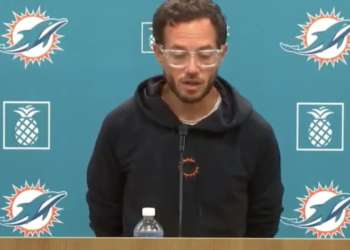
![Keith Ellison Caught Promising to Fight State Agencies for Somali Fraudsters [WATCH]](https://www.right2024.com/wp-content/uploads/2026/01/Keith-Ellison-Caught-Promising-to-Fight-State-Agencies-for-Somali-350x250.jpg)
